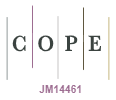Experience and aesthetic education: senses and epiphanies of children´s soirée into the federal university of bahia
DOI:
https://doi.org/10.5585/eccos.n53.16705Keywords:
Aesthetic education, Children, Formation, Children´s soirée.Abstract
The research refers to the integration of developed actions since the children´s soirée: Every Child is a poem. This soirée configures in diversifies spaces/times of appreciation and artistic production, permeated for corporal and sensitive experiences between undergraduate students from UFBA and children from public schools. We try to investigate which senses would be produced by the undergraduate students since the experience of Children´s soirée, so that they reflected on the formative processes from the experience with the children. Theoretical foundation was constructed since the studies of Jacques Rancière (2005), about the sharing of sensitive and the knowledge, thinking and feeling integration; contributions of Friedrich Schiller (2002) about aesthetic education that allow us a passing-trough from the passive mood of sensitiveness to active mood of thinking. The studies of Carbonell (2012) about the binomial “experience-aesthetic” related with the sensitiveness exercise; and, from the contributions of Maffesoli (2008) about sensitiveness and reason. Methodologically, the principles of participant research allow that the participants were capable to see their selves as active agents in the research, producing knowledge and intervening artistically in the reality. Two categories conducted the analysis: 1. The produced senses about the soirée experience; 2. The aesthetical stamp experience, senses and reflections in the formation. We conclude that a few undergraduates had lived experiences aesthetical-sensitive through the undergraduate program. Another arisen aspect was the distancing of undergraduate teacher training programs from the studies about childhood. The Children´s soirée showed to be a rich moment of formation, where it was possible to live, to think, to give sense and make autonomous inferences in the formative paths.
Downloads
References
ARAÚJO, Miguel Almir Lima de. Os sentidos da sensibilidade: sua fruição no fenômeno de educar. Salvador: EDUFBA, 2008.
ARENDT, Hannah. Liberdade para ser livre. Tradução e apresentação: Pedro Duarte. Rio de Janeiro: Bazar do tempo, 2018. Coleção Por que política? V. 3.
AUTORA1 et al., (2019). Arte, interdisciplinaridade e infância: experiências estéticas, artísticas e brincantes no Sarau Toda Criança é um Poema. In: Revista Entreideias, Salvador, v. 8, n. 2, p. 211-232, maio/ago. 2019.
AUTORA2. Potes que guardam vidas, vidas que viram histórias: a poteca como ação interativa nas narrativas de crianças e adultos do assentamento Rose, na região sisaleira de Santaluz, Ba. Tese (doutorado) Universidade Federal da Bahia. Instituto de Humanidades, Artes e Ciências Professor Milton Santos, Salvador, 2019.
CARBONELL, Sônia. Educação estética na EJA: a beleza de ensinar e aprender com jovens e adultos. São Paulo: Cortez, 2012
DEMO, Pedro. Pesquisa participante: saber pensar e intervir. Brasília: Liber Livro editora, 2004. (Série Pesquisa em Educação, v. 8).
DEWEY, J. Experiência e educação. Tradução de Anísio Teixeira. São Paulo: Editora Nacional, 1971.
DUARTE JÚNIOR, J.-F. Fundamentos estéticos da educação. 2. ed. Campinas: Papirus, 1998.
DUARTE JÚNIOR, J.-F.O sentido dos sentidos: a educação (do) sensível. 2. ed. Campinas: Papirus, 2001.
DUARTE JÚNIOR, J.-F.. O sentido dos sentidos: a educação (do) sensível. 3. ed. Curitiba: Criar Edições, 2004.
GALEFFI, Dante Augusto. Didática filosófica mínima: ética do fazer-aprender a pensar de modo próprio e apropriado como educar transdisciplinar. Salvador: Quarteto, 2017.
ISSE, R. Educação estética: uma ponte entre Schiller e Habermas. Porto Alegre: UFRGS, 2007. Dissertação de Mestrado.
MAFFESOLI, Michel. Elogio da razão sensível. 4ª ed. Petrópolis, RJ: Vozes, 2008.
NAJMANOVICH, D. O sujeito encarnado: questões para pesquisa no/do cotidiano. Rio de Janeiro: DP&A, 2001.
RANCIÈRE, Jacques. A partilha do sensível: estética e política. Tradução de Mônica Costa Netto. São Paulo: EXO experimental org. Ed. 34, 2005.
ROUBINE, Jean-Jacques. Introdução às grandes teorias do teatro. Rio de Janeiro: Jorge Zahar Ed., 2003.
SARMENTO, M.; GOUVÊA, M. C. S. (org.). Estudos da infância: educação e práticas sociais. Petrópolis, RJ: Vozes, 2008. (Ciências Sociais da Educação).
SCHILLER, F. A educação estética do homem. Trad. Roberto Schwarz e Márcio Suzuki. São Paulo: Iluminuras, 2002.
VEIGA, Ilma Passos A. Professor: tecnólogo do ensino ou agente social? In: VEIGA, Ilma Passos A. Ana Lúcia Amaral (orgs.). Formação de professores: políticas e debates. 5ª ed. Campinas, SP: Papirus, 2012. Coleção Magistério: Formação e Trabalho pedagógico.
VERÁSTEGUI, R. L. A. A educação estética do ser humano de Friedrich Schiller. Disponível:http://www.unioeste.br/cursos/cascavel/pedagogia/eventos/2007/Simpósio%20Academico%202007/Trabalhos%20Completos/Trabalhos/PDF/57%20Rosa%20de%20Lourdes.pdf>. Acesso em 22/02/2020.
Downloads
Published
How to Cite
Issue
Section
License
Copyright (c) 2020 EccoS – Revista Científica

This work is licensed under a Creative Commons Attribution-NonCommercial-ShareAlike 4.0 International License.
- Abstract 554
- PDF (Português (Brasil)) 447







